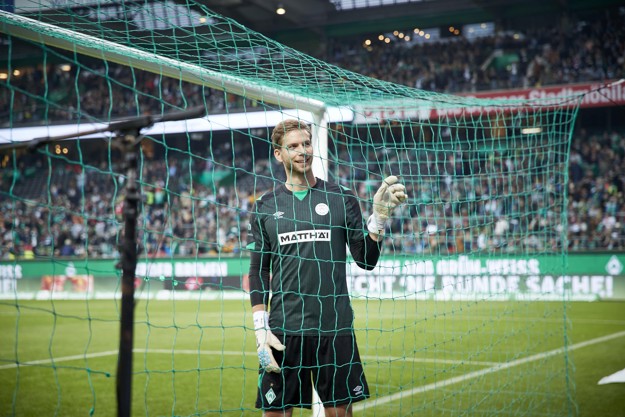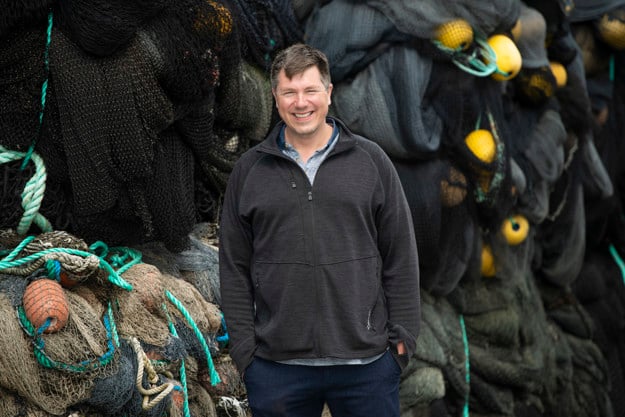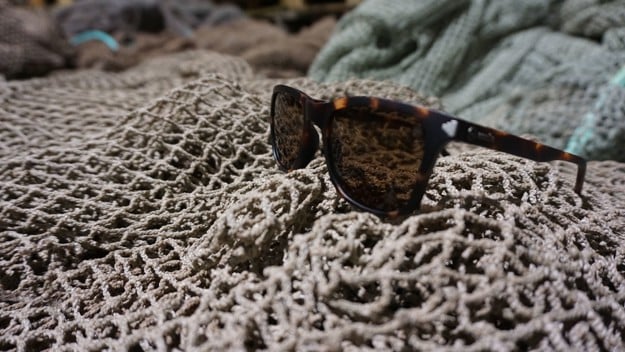Lerøy has thought about it, and has since 2010 been working with Nofir, a company that collects and recycles materials and tools from the fishing and aquaculture industries.
“We are really pleased that a big company like Lerøy has decided to focus on sustainability throughout its operations”, says Øistein Aleksandersen, the Managing Director of Nofir.
This includes collecting various kinds of nets, mooring lines, tarpaulins and cleaner fish shelters that can no longer be used.
“I think it is wonderful that equipment we can no longer use is being recycled and used for other purposes”, says Anne Hilde Midttveit, who is head of sustainability at Lerøy.

Become new products
Between 2019 and 2023, 1259 tonnes were collected for material recycling, and 1,313 tonnes were allocated for energy recovery from Lerøy's facilities. Maybe some of it has ended up in your house? The material collected is recycled and turned into a range of new products.
“They include anything from benches, volleyball nets and deodorant containers to luxury car seats and swimwear”, says Øistein.
In order to prevent marine waste, the aim is to recycle as much as possible. Nevertheless, there are some things that cannot be used to make new products. Primarily, this applies to silt from washing processes and sea cages that are too polluted.
“These are used to generate energy instead”, explains Øistein.
Among Norway's most circular industries
In the course of 2023, a total of 227 tonnes were salvaged, with 215 of them directed towards material recycling and only 11 towards energy recovery. This implies that nearly 95% of the material sent by Lerøy had the opportunity to be transformed into new products through Nofir and its partners.
"What is incredibly positive is the progress towards a more circular economy. Players like Lerøy contribute, through conscious material choices, to enabling even more recycling. For us at Nofir, there is little more significant than being able to demonstrate that recycling matters, and that the aquaculture industry is indeed heading towards becoming one of the most circular industries in Norway," says Erlend Skaug, the communication manager at Nofir.

Reduced carbon emissions and increased awareness
Recycling is an important part of Lerøy’s sustainability strategy. As a seafood company, Lerøy is dependent on the sea, and its core operations must be permanently sustainable.
“Our goal is for everything possible to be reused and not thrown away”, says Anne Hilde.
Recycling also helps to reduce greenhouse gas emissions. The 2,454 tonnes of material recycled at Lerøy reduce greenhouse gas emissions by the equivalent of 58,000 passengers travelling between Oslo and London. The environment is saved from the emission of almost 6,400 tonnes of CO2 equivalents and 3,500 tonnes of oil equivalents.
“We have enjoyed a good partnership with Nofir over a number of years, and it is a company that has focused hard on recycling equipment, which is we think is great”, says Anne Hilde.
Øistein says that he finds the aquaculture industry to be environmentally conscious, and that it is setting higher and higher standards for sustainability and recyclability. Nevertheless, he notes that not everyone is on board.
“We need companies like Lerøy to lead the way by showing that there is value to be had in recycling and in a circular economy”, says Nofir’s Managing Director Øistein Aleksandersen.

Sustainability is a constant priority for Lerøy, and it was a vital consideration when it recently signed a framework contract for the supply of feed hoses. One of the main, and ultimately decisive, criteria was the recycling solution.
“Sustainability should always be part of the evaluation process in conjunction with competitive procurement at the Lerøy Seafood Group”, says Erik Kjær Mjøs, a senior procurement advisor at LSG.
Find out more about sustainability at Lerøy in Lerøy’s sustainability library.

